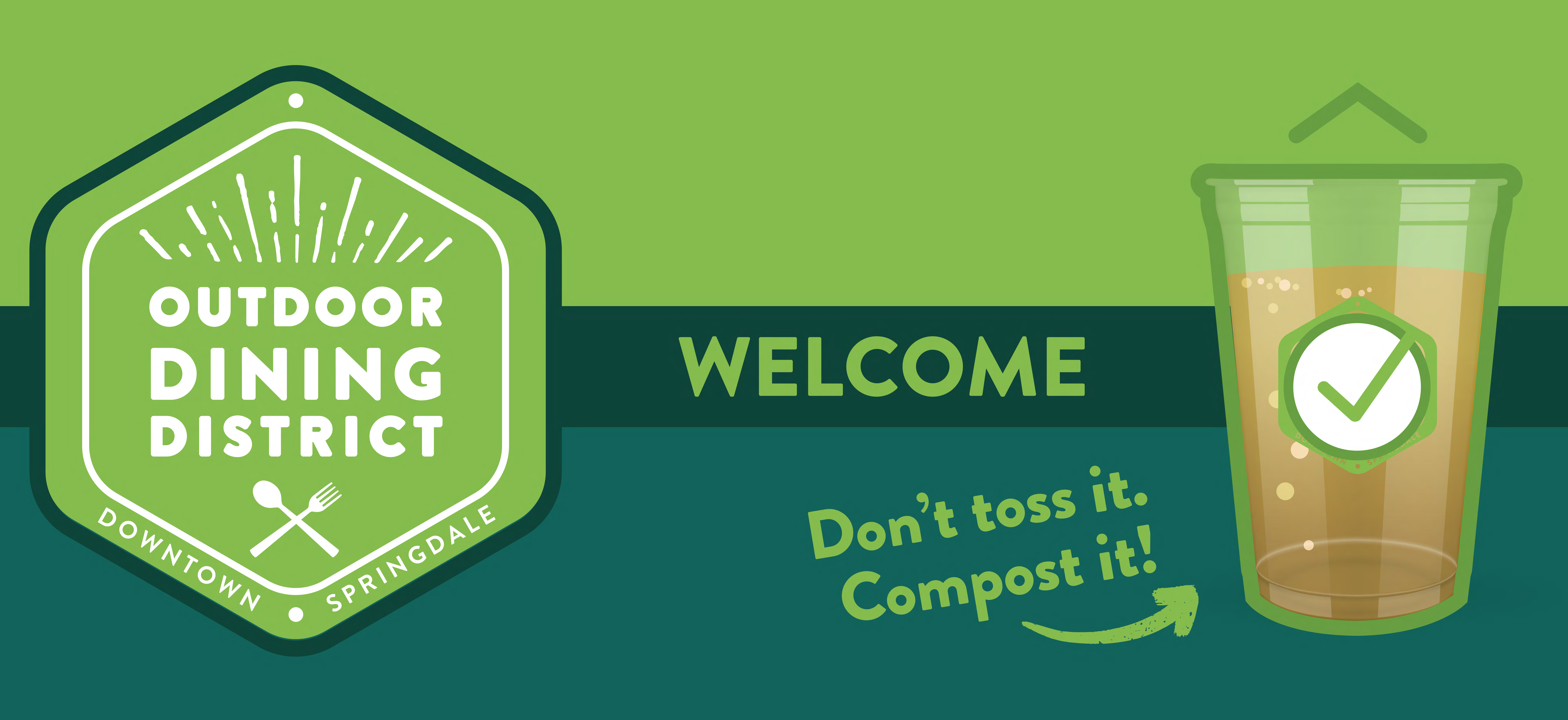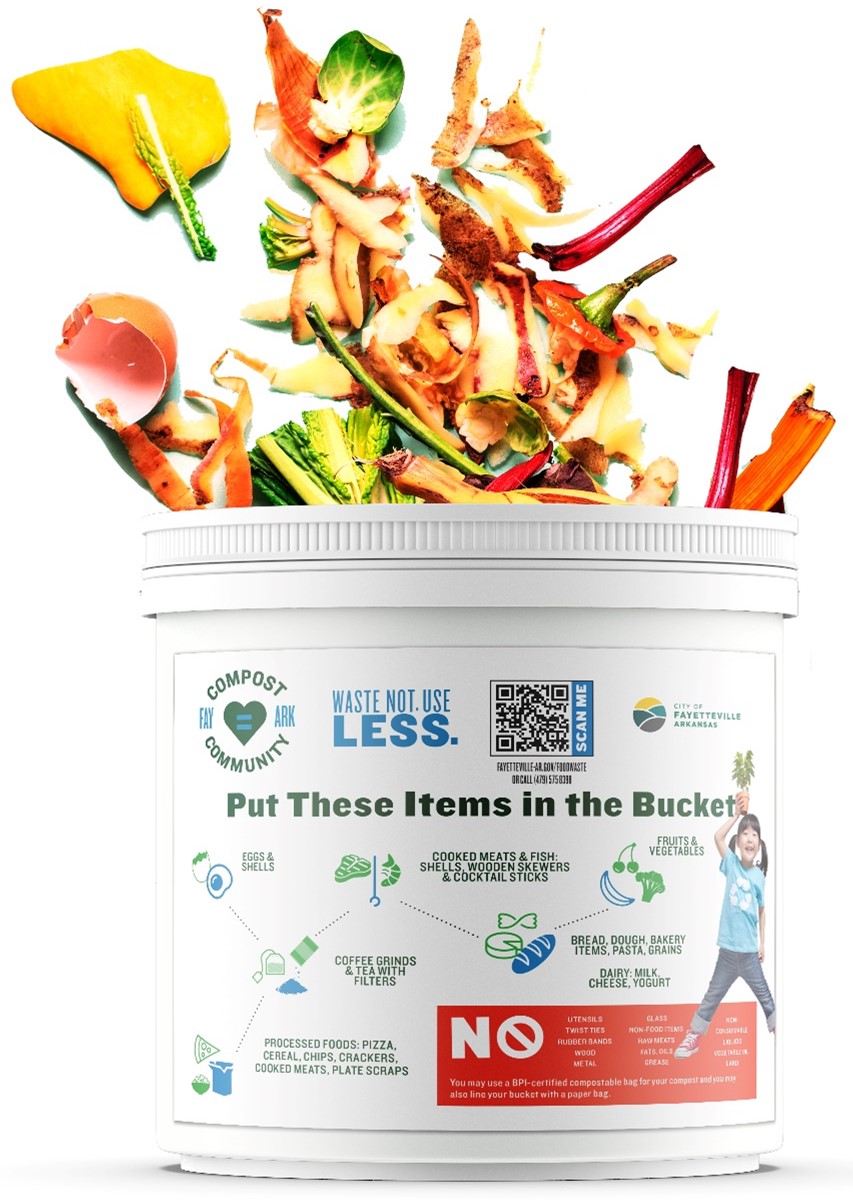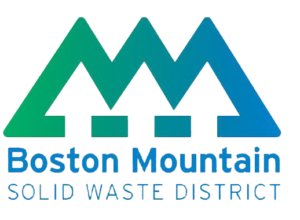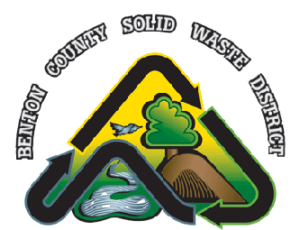Composting is taking root in Northwest Arkansas, and that brings questions, concerns and misconceptions. How do I compost? Won’t it be smelly? Wouldn’t food scraps decompose in the landfill anyway? You don’t have to go on wondering, because NWA Recycles can answer queries like these. Let’s start at the beginning.
What is composting?
Composting is the process of gathering organic wastes, whether that’s leaves and clippings from your yard or peels and stems from your kitchen, and decomposing them into compost, an earthy, dirt-like material that brings nutrients and beneficial structure to soil.
Why should I compost?
Composting saves landfill space, prevents emissions of some greenhouse gases like methane, helps plants absorb more carbon dioxide, and provides natural fertilizer for local farming and gardening. In some cases it can also save you money on trash hauling.
How should I compost?
You have a few options depending on where you live.
Fayetteville residents can join the city’s composting program with free buckets and drop-off locations. Businesses in the city can sign up for pickup services.
Support businesses that compost, such as in Springdale’s downtown district.
Regionwide, several businesses provide composting in a variety of niches:
- Food Loops concentrates on event and venue composting, recycling and waste reduction.
- Food Recycling Solutions serves restaurants and other commercial and multifamily locations.
- Ozark Compost & Swap can provide pickup services at homes, apartments and offices and also delivers local coffee, cleaning products and more in reusable containers.
Composting can also happen in your backyard. Fayetteville has a helpful starting guide online.
Can I trust products labeled “compostable”?
 In many cases, yes, and it’s easy to tell for sure. All sorts of paper plates, cutlery and trash bags available at your grocery store have labels saying they’re compostable or biodegradable, even certified so. But many don’t say who did the certifying, which is a big red flag. Items with the BPI certification seal are the ones to trust, because it means the product genuinely will break down into compost under the right conditions.
In many cases, yes, and it’s easy to tell for sure. All sorts of paper plates, cutlery and trash bags available at your grocery store have labels saying they’re compostable or biodegradable, even certified so. But many don’t say who did the certifying, which is a big red flag. Items with the BPI certification seal are the ones to trust, because it means the product genuinely will break down into compost under the right conditions.
Note: These items usually can be composted only through services like the ones listed above, not in your yard.
Isn’t organic waste composting in the landfill already?
Organics certainly decompose in the landfill over time, but this kind of decomposition comes without the benefits of composting and with its own issues. That’s because decomposition works differently in a landfill versus a compost pile. In a landfill, organic waste breaks down without oxygen and creates methane, a greenhouse gas more powerful than carbon dioxide. Plus the landfill seals away many of the nutrients. Composting releases some carbon dioxide instead of methane and can support CO2-absorbing plants.
Won’t it stink?
For many would-be composters, this is the smelly heart of the matter, especially when someone’s coming to pick up the food waste later. The answer is it doesn’t have to. Ozark Compost & Swap shared tips for preventing the issue:
- Throw in your coffee grounds, which are perfectly compostable and make a good cover for the material underneath.
- Keep your compost container closed and cool — you can even freeze it until pickup.
- Continually add to the container, such as by replacing throwaway plastic plates and forks with compostable ones and eating more fruits and veggies at home.














